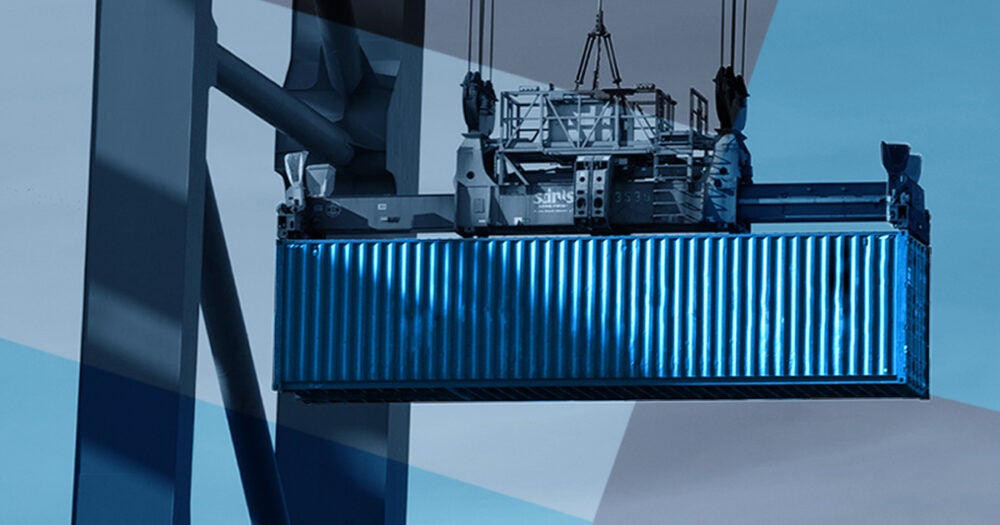Creating a resilient supply chain is key to building a successful business in any industry. But supply chain resiliency can be difficult to achieve due to the number to factors that may pop up to challenge a process's overall efficiency and flexibility.
In recent years, shippers have had to reevaluate their supply chain efforts in response to global economic disruption. As the economy continues to try to stabilize, businesses like yours are finding it increasingly important to reimagine their processes to help withstand these unforeseen challenges. To help, we've compiled a list of factors impacting your supply chain and ways you can create a truly optimized supply chain to help protect your business for the future.
Potential Impacts on Supply Chain Processes
Political relations
It's well known that, when a commodity's country of origin is engaged in a dispute with another, that commodity becomes much more valuable. Wars, shipping embargoes and even trade deals can send prices skyrocketing and make international trade goods like gas and minerals extremely hard to come by. Global trade regulations and conflicts, as well as tariff threats as a political tool, can cut off sources and entire markets and push your business plan into the red.
Although there's no way to control the global trade industry, you can work with a supply chain consultant with global expertise to monitor these threats and develop solutions to lessen the impact on your business.
Health crises
The 2020 onset of the COVID-19 pandemic has been, by far, one of the largest supply chain disruptors of the 21st century. In fact, this disruption was so far-reaching that everyone experienced it in some way — from toilet paper supply to an overwhelming shortage of necessary medical supplies. And while global pandemics like this have the power to shut down nearly all existing supply chain processes, local epidemics are even able to mimic these conditions on a much smaller scale.
As with external factors like the global trade industry or the national economy, individual businesses, unfortunately, have no control over when, how or for how long a health crisis will impact operations. However, you can work with a supply chain consultant who will monitor evolving economic and financial trends to help your business navigate any external disruption.
Economic climates
As we've made our way past the height of the COVID-19 pandemic, there has been much talk regarding the state of both the national and global economies and how a recession may be imminent. While scholars and economists may have differing views on the economy's current state, one thing is certain: a recession period can grind your supply chain to a screeching halt.
While we have little control over the global supply chain in its entirety, we are able to minimize the effects of a recession on our own supply chains by planning ahead. Identify unnecessary expenditures within your supply chain, create a flexible business structure to allow yourself wiggle room and consider working with a trusted 3PL to save money and increase your buying power to give yourself the best fighting chance should any markets crash.
Weather patterns
Weather can cause both short and long-term disruptions in supply chains in many industries. Sudden severe weather and natural disasters can shut down entire areas of the country for days or even weeks at a time. Additionally, changing climates may have an even longer-term effect on the sourcing of certain raw materials, meaning some supply chains may require a complete overhaul to remain effective in the coming years.
To prepare against weather-related supply chain disruptions, put contingency plans in place for alternative sourcing and routing, and decide how you will handle any missed or delayed processes upon your return so you won't miss a beat when bad weather hits.
Cyber threats and attacks
Society has become more technologically dependent than ever, especially with the recent surge in e-commerce growth. From localized phishing attacks to large-scale data breaches, technology vulnerabilities can drastically increase your supply chain risk.
Luckily, there are an array of ways to help keep yourself and your business safe from cybercriminals that you can put into action right away. Make sure to always practice safe internet access, invest in security systems to protect your data and software and work with a supply chain consultant to keep up with cybersecurity threats and trends as they emerge.
Logistics challenges
From capacity constraints and not having enough trucks on the road to struggling to source quality goods, modern shippers are dealing with an array of logistics issues all at once. Additionally, as prices continue to fluctuate as a result of the COVID-19 pandemic and as the global supply chain slowly regulates, these logistics challenges can wreak havoc on your bottom line.
So what's the simplest way to manage your logistics and keep your business on track, all while gaining end-to-end supply chain visibility? Partner with a trusted 3PL like GlobalTranz! We'll do all the heavy lifting when it comes to minimizing your supply chain risk so you can get back to focusing on growing your business to new heights.
Develop a Fully Optimized Supply Chain with GlobalTranz
Optimizing shipping and logistics solutions can be complicated for many shippers on any given day, but especially when faced with global and economic disruption. That's why we're proud to be a 3PL of choice for shippers across the nation. By providing best-in-class support, award-winning solutions and total supply chain visibility, GlobalTranz continues to help businesses transform the way they view logistics and overcome a variety of supply chain challenges. Connect with an expert today to see how we can help protect your business from supply chain disruptions and more.

